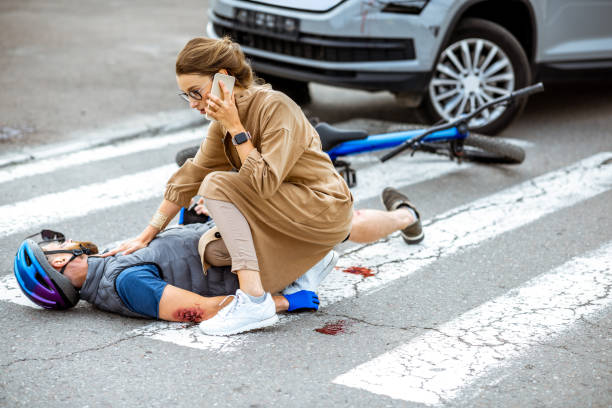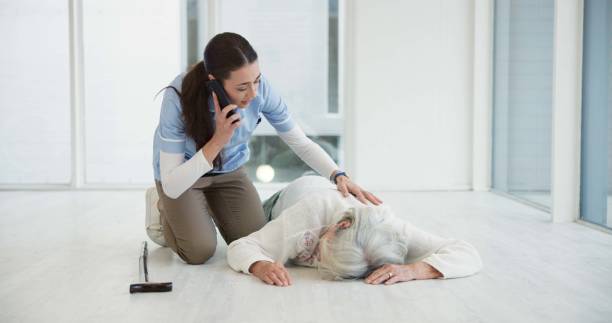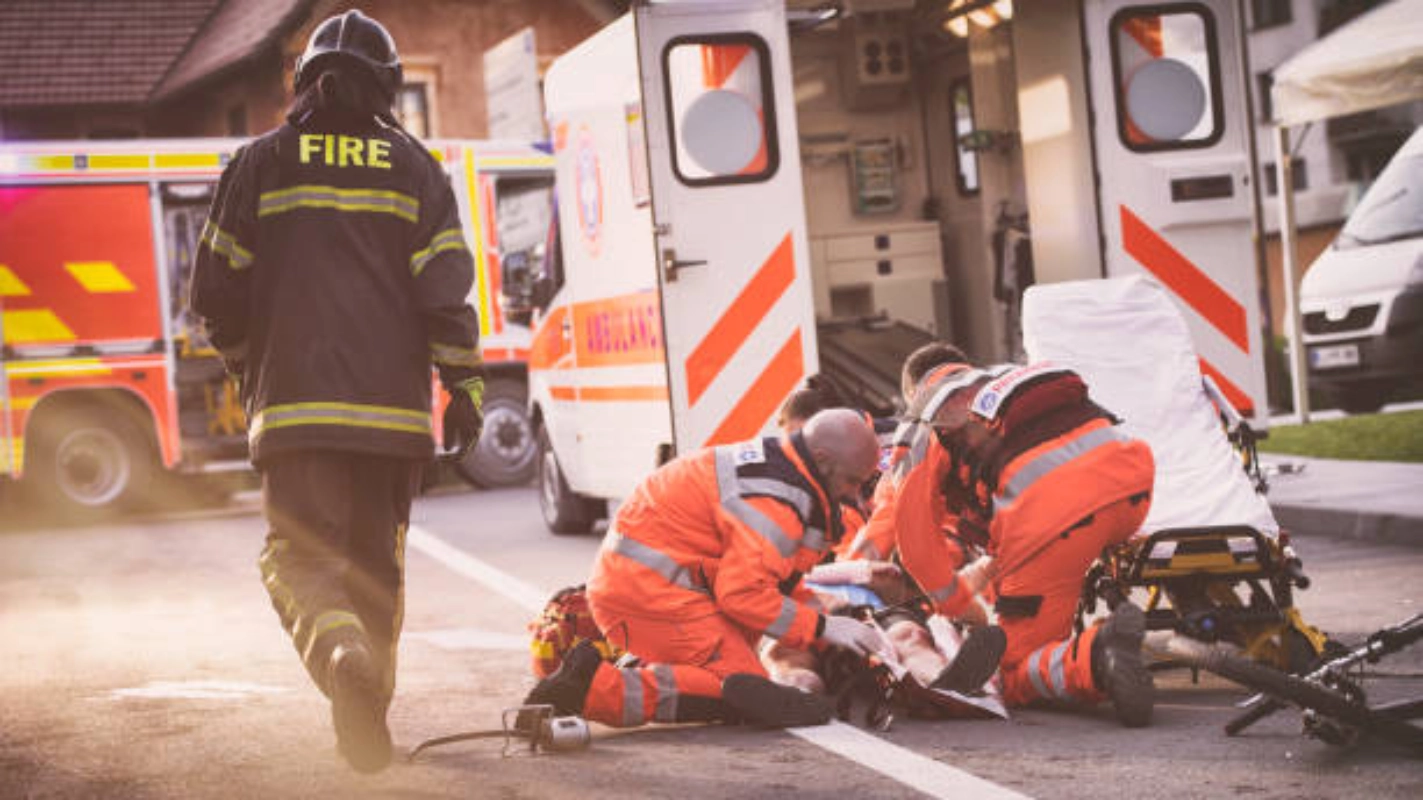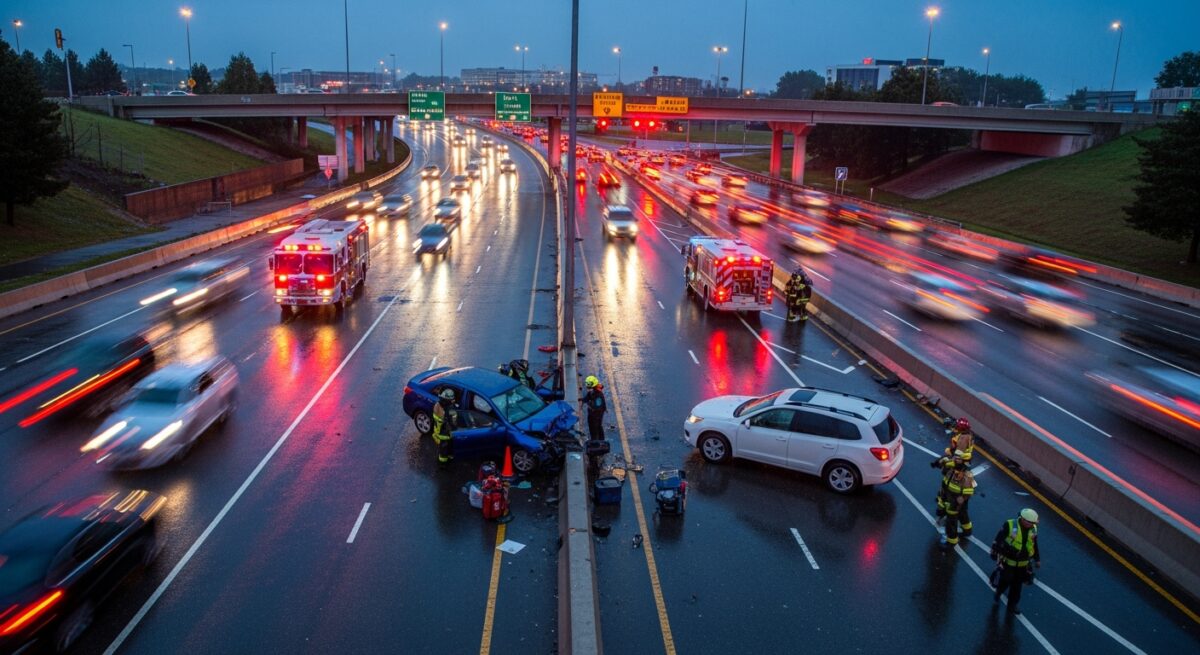What to Do After a Hit and Run Accident: Step-by-Step Guide
1. Stay Calm and Assess the Situation
In the moments after a hit and run accident, staying calm is critical. Panicking can cloud your judgment. First, make sure you’re safe by moving to a secure location away from traffic. Once safe, check your surroundings and yourself for injuries.
If anyone is hurt, call emergency services right away. If you’re able, try to note the fleeing vehicle’s make, model, color, or license plate. This information is vital for the police report and insurance claim.
Also, take clear photos of your car, the damage, and the scene—it’s valuable evidence for filing claims.

Ready to connect with top legal professionals? Get immediate support— Call us at 877-550-8911.
Connect with Our Legal Team
2. Check for Injuries and Call for Help
Ensure everyone is safe. Even if injuries aren’t visible, it’s best to call emergency services at
911.
If you’re unsure about how to report an accident, you can check official resources like the
National Highway Traffic Safety Administration (NHTSA) for safety guidelines.
3. Gather Information from Witnesses
Witnesses can be crucial in a hit and run case. Calmly ask anyone who saw the incident to share what they observed.
Get their names, contact info, and a brief statement of what they saw. If they remember any vehicle details—like color, model, or plate number—write it down. This strengthens your report and supports insurance or legal action.
4. Document the Scene
Documentation is one of the most important steps in knowing what to do after a hit and run accident.
Take clear photos of your vehicle, damages, skid marks, debris, and nearby signs. Record the exact time and location. Sketch a simple diagram showing how the accident happened.
Collect contact info from witnesses, and note anything unusual—like poor visibility or weather conditions.
5. Report the Incident to the Police
You must report the accident to the police as soon as possible. This creates an official record and helps with your insurance claim.
Give detailed info such as time, place, and any vehicle or suspect details. If you’ve gathered witness statements or photos, share them. Ask for a copy of the police report—it’s critical for legal or insurance purposes.
6. Notify Your Insurance Company
Inform your insurance provider about the hit and run.
If your policy includes
uninsured motorist coverage or
collision insurance, it may help cover the cost of damage or injuries.
📚 Want to understand more?
Read this guide from Investopedia on hit and run insurance.
7. Seek Medical Attention if Necessary
Even if you feel fine, it’s wise to get checked by a doctor. Internal injuries like concussions or whiplash may not show symptoms right away.
Medical documentation helps with insurance claims and protects your long-term health. Don’t delay—make this a priority.
8. Understand Your Legal Rights
Knowing your legal rights is vital after a hit and run accident. In many states, leaving the scene is a criminal offense.
A personal injury lawyer can help you understand your rights, assist in insurance claims, and guide you if legal action is needed. They can also help you recover compensation for damages or injuries.
 9. Follow Up on the Investigation
9. Follow Up on the Investigation
Stay in touch with both the police and your insurance company. Request a copy of the police report, and provide updates or new evidence if you gather any.
Consult with a lawyer if needed. Following up ensures the case progresses and improves your chances of getting compensation.
FAQs About What to Do After a Hit and Run Accident
Q1. Should I file a police report even if I have little information?
Yes, always file a report. Even limited information may help the investigation.
Q2. Will insurance cover a hit and run?
It depends on your policy. Uninsured motorist or collision coverage usually helps in hit and run cases.
Q3. What if I don’t feel hurt right after the accident?
Some injuries appear later. Always seek medical attention to ensure you’re okay and to document your condition.
Q4. Can witnesses help my case?
Absolutely. Witness statements can strengthen your police report and insurance claim.
Q5. Should I contact a lawyer after a hit and run?
If injuries or major damages are involved, a lawyer can help protect your rights and maximize compensation.
Don’t wait to secure the legal representation you deserve. Visit Legal Case Review today for free quotes and tailored guidance, or call 877-550-8911 for immediate assistance.

 9. Follow Up on the Investigation
9. Follow Up on the Investigation


